- Browse
- Software Design
Software Design Courses Online
Learn software design for developing robust applications. Understand design patterns, object-oriented principles, and user-centered design.
Explore the Software Design Course Catalog
 Status: Free TrialFree Trial
Status: Free TrialFree TrialSkills you'll gain: Software Development Life Cycle, Software Architecture, Software Design, Scrum (Software Development), Software Engineering, Software Design Patterns, Agile Methodology, Software Development, Programming Principles, Application Development, Cloud Development, Web Development, Back-End Web Development, Front-End Web Development, Computer Programming, Integrated Development Environments, Python Programming
4.7·Rating, 4.7 out of 5 stars4.2K reviewsBeginner · Course · 1 - 3 Months
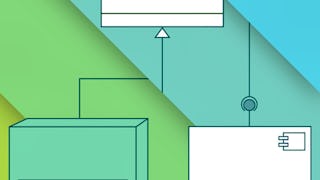 Status: Free TrialFree TrialU
Status: Free TrialFree TrialUUniversity of Alberta
Skills you'll gain: Software Architecture, Model View Controller, Unified Modeling Language, Object Oriented Design, Service Oriented Architecture, API Design, Systems Architecture, Web Services, Software Design Patterns, Software Design, Simple Object Access Protocol (SOAP), Microservices, Restful API, Software Design Documents, Software Visualization, Code Review, Solution Architecture, Object Oriented Programming (OOP), Java, Software Development
4.6·Rating, 4.6 out of 5 stars4K reviewsBeginner · Specialization · 3 - 6 Months
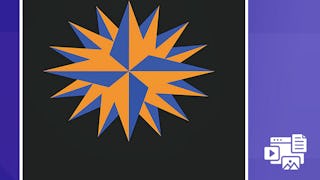 Status: NewNew
Status: NewNewSkills you'll gain: Video Production, Instructional Design, Virtual Environment, User Interface and User Experience (UI/UX) Design, Learning Management Systems, Teaching, User Experience Design, User Centered Design, Storyboarding, Student Engagement, Learning Styles, Technical Writing, Human Centered Design, UI/UX Research, Information Architecture, Online Advertising
Beginner · Course · 1 - 3 Months
 Status: Free TrialFree TrialU
Status: Free TrialFree TrialUUniversity of Colorado System
Skills you'll gain: Database Design, Software Design, Application Security, Vulnerability Assessments, Unified Modeling Language, Unit Testing, Threat Modeling, Usability Testing, User Interface and User Experience (UI/UX) Design, Open Web Application Security Project (OWASP), Technical Design, Software Architecture, Secure Coding, Object Oriented Design, Software Design Patterns, Database Management, Security Software, Systems Design, Software Engineering, Software Development Life Cycle
4.6·Rating, 4.6 out of 5 stars438 reviewsBeginner · Specialization · 3 - 6 Months
 Status: Free TrialFree TrialU
Status: Free TrialFree TrialUUniversity of Minnesota
Skills you'll gain: User Story, Agile Software Development, Software Design Patterns, Design Thinking, Software Development Methodologies, Software Design, Agile Methodology, Agile Project Management, Process Mapping, Software Engineering, Kanban Principles, Software Development Life Cycle, Software Quality Assurance, Application Security, Scrum (Software Development), Object Oriented Design, Software Architecture, User Experience Design, Software Quality (SQA/SQC), Requirements Analysis
4.7·Rating, 4.7 out of 5 stars9.8K reviewsIntermediate · Specialization · 3 - 6 Months
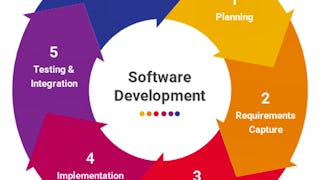 Status: Free TrialFree TrialT
Status: Free TrialFree TrialTThe Hong Kong University of Science and Technology
Skills you'll gain: Software Design Patterns, Requirements Analysis, Systems Development Life Cycle, Software Architecture, Acceptance Testing, Software Development Methodologies, Unified Modeling Language, Software Development Life Cycle, Configuration Management, Software Quality Assurance, Debugging, Software Design, Software Engineering, Software Testing, Object Oriented Design, Functional Requirement, Data Modeling, Systems Design, Project Management, Project Planning
4.6·Rating, 4.6 out of 5 stars583 reviewsIntermediate · Specialization · 3 - 6 Months
What brings you to Coursera today?
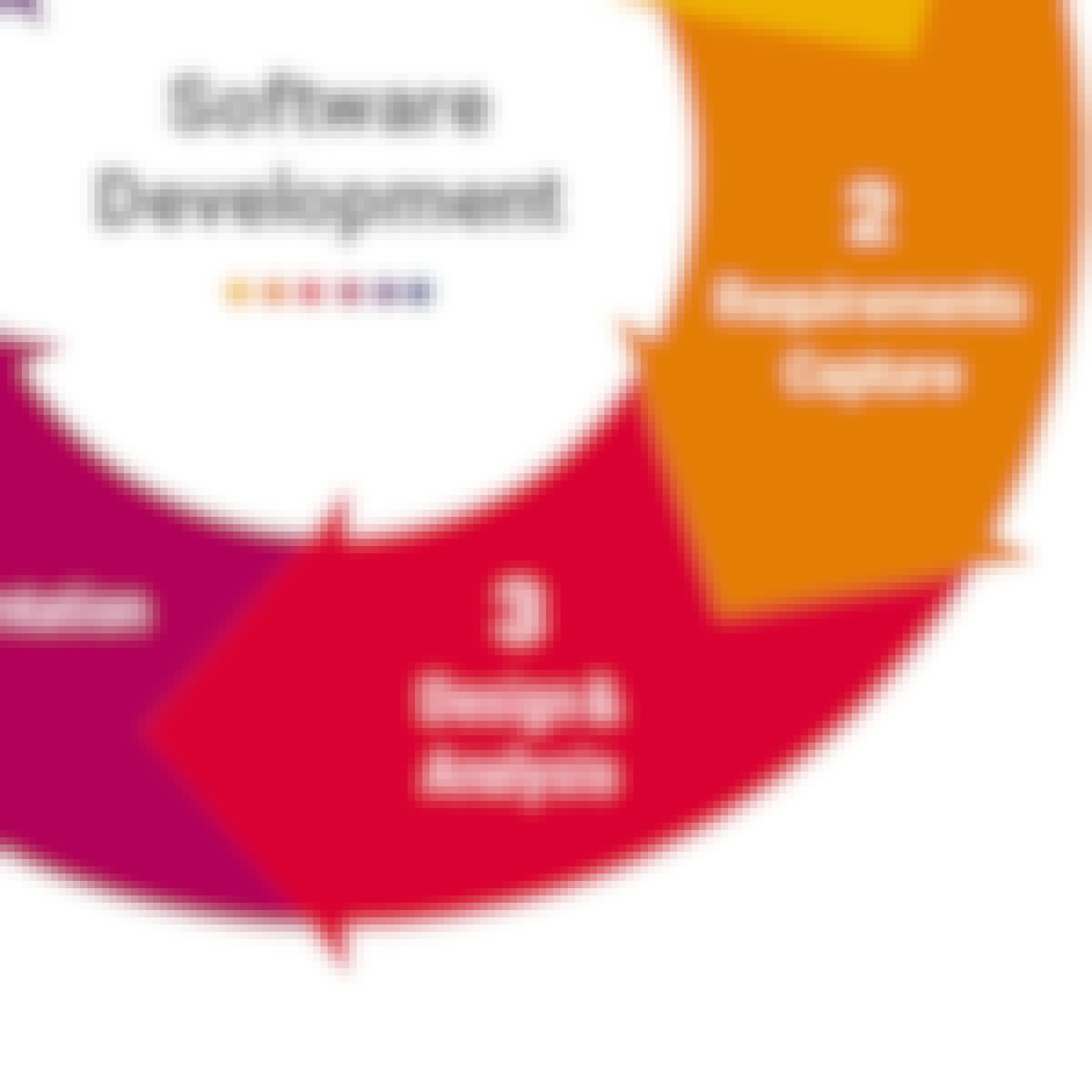 Status: Free TrialFree TrialT
Status: Free TrialFree TrialTThe Hong Kong University of Science and Technology
Skills you'll gain: Software Design Patterns, Systems Development Life Cycle, Software Architecture, Software Development Life Cycle, Software Quality Assurance, Software Design, Process Driven Development, Software Engineering, Quality Assurance, Systems Analysis, Object Oriented Design, Systems Design, Program Development, Project Management, Project Planning, Unified Modeling Language
4.6·Rating, 4.6 out of 5 stars189 reviewsIntermediate · Course · 1 - 3 Months
 Status: Free TrialFree TrialU
Status: Free TrialFree TrialUUniversity of Alberta
Skills you'll gain: Agile Software Development, Project Risk Management, Requirements Analysis, Agile Methodology, Kanban Principles, Risk Management, Project Planning, Requirements Elicitation, Sprint Retrospectives, Requirements Management, Functional Requirement, Business Requirements, Sprint Planning, Software Development Methodologies, Software Development Life Cycle, Scrum (Software Development), Software Technical Review, Risk Management Framework, Product Management, Project Management
4.7·Rating, 4.7 out of 5 stars12K reviewsBeginner · Specialization · 3 - 6 Months
 Status: Free TrialFree TrialStatus: AI skillsAI skillsM
Status: Free TrialFree TrialStatus: AI skillsAI skillsMMicrosoft
Skills you'll gain: Storyboarding, User Research, Information Architecture, User Experience Design, Design Thinking, Prototyping, Usability Testing, User Experience, Persona (User Experience), Wireframing, User Interface and User Experience (UI/UX) Design, Interaction Design, Web Content Accessibility Guidelines, Human Centered Design, Figma (Design Software), Usability, User Interface (UI) Design, User Centered Design, Design, Artificial Intelligence
4.6·Rating, 4.6 out of 5 stars550 reviewsBeginner · Professional Certificate · 3 - 6 Months
 Status: NewNewStatus: Free TrialFree TrialS
Status: NewNewStatus: Free TrialFree TrialSSimplilearn
Skills you'll gain: Generative AI, Mockups, User Interface (UI), User Interface and User Experience (UI/UX) Design, Usability, Software Design, Prompt Engineering, Artificial Intelligence, Prototyping, User Centered Design, Software Architecture, Software Engineering
Beginner · Course · 1 - 4 Weeks
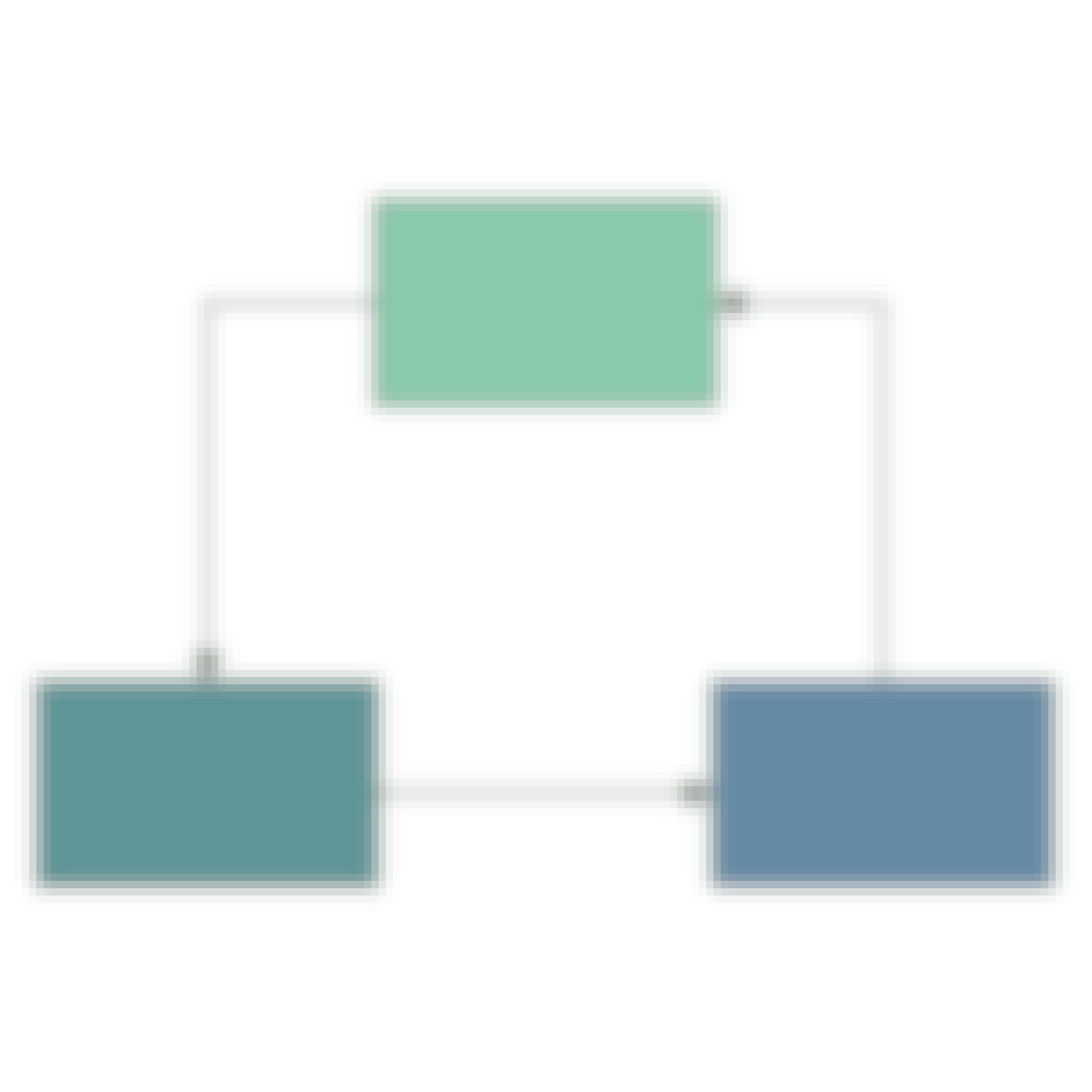 Status: Free TrialFree TrialU
Status: Free TrialFree TrialUUniversity of Alberta
Skills you'll gain: Model View Controller, Software Design Patterns, Software Design, Unified Modeling Language, Object Oriented Design, Code Review, Software Architecture, Programming Principles, Maintainability, Java, Application Design
4.7·Rating, 4.7 out of 5 stars1.4K reviewsIntermediate · Course · 1 - 4 Weeks
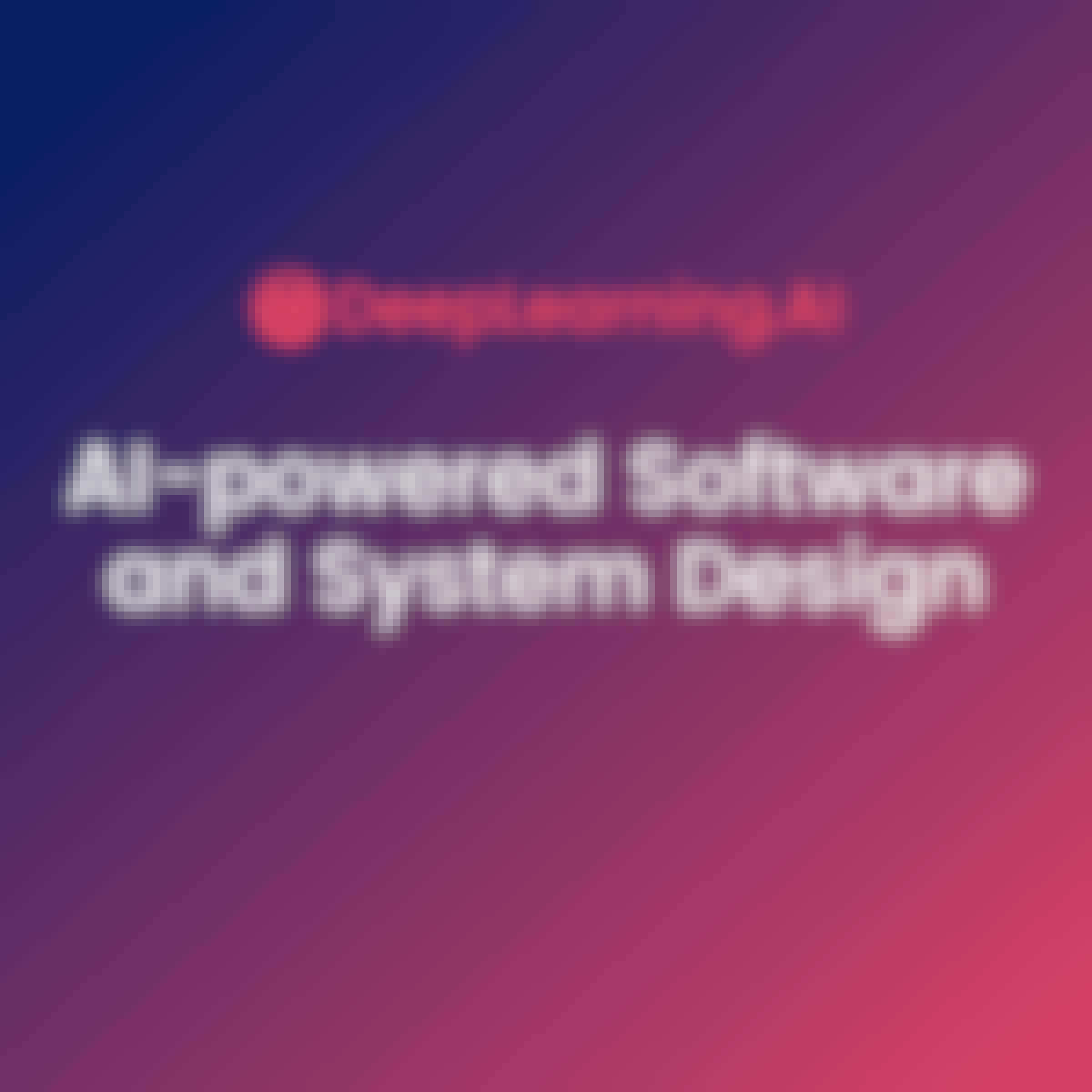 Status: Free TrialFree TrialD
Status: Free TrialFree TrialDDeepLearning.AI
Skills you'll gain: Database Design, Software Design Patterns, Databases, Application Design, Database Management, Software Design, Software Architecture, System Design and Implementation, Large Language Modeling, Artificial Intelligence, Security Testing, Secure Coding, Application Programming Interface (API), Performance Tuning
4.7·Rating, 4.7 out of 5 stars165 reviewsBeginner · Course · 1 - 4 Weeks
Software Design learners also search
In summary, here are 10 of our most popular software design courses
- Introduction to Software Engineering: IBM
- Software Design and Architecture: University of Alberta
- Design for Learning: UX in Online Teaching: Packt
- Secure Software Design: University of Colorado System
- Software Development Lifecycle: University of Minnesota
- Software Engineering: The Hong Kong University of Science and Technology
- Software Engineering: Software Design and Project Management: The Hong Kong University of Science and Technology
- Software Product Management: University of Alberta
- Microsoft UX Design: Microsoft
- Generative AI Course in Software Design: Simplilearn
Frequently Asked Questions about Software Design
Software design is the process of creating a plan to guide the development of a software solution based on an assessment of user requirements determined through research and testing. It is a very important phase of the software development lifecycle, as software design provides the foundation for subsequent coding and implementation by programmers and software engineers.
The software design process may encompass many aspects including planning for software architecture, design of user interfaces and other visual elements, and the selection of software design patterns and other components. Application security is another critical consideration for software design, and implementing secure practices as early as possible in the software development lifecycle can help ensure that the final product provides adequate protections for business and customer data.
An understanding of software design principles can be a terrific asset for a career in software development, as it provides an overarching view of the entire software development lifecycle. In some ways, you can think of the software designer as the architect whose vision directs the work of a team of engineers and construction workers. According to Glassdoor, software designers in the U.S. earn an average annual salary of $92,046 - significantly more than software programmers, whose average salary according to Glassdoor is $76,526.
Certainly. Taking online courses on Coursera has become an incredibly popular way for students from around the world to learn about a wide range of computer science topics, including software design. Top-ranked schools like the University of Alberta, the University of Colorado, and the University of Minnesota offer individual courses as well as Specializations spanning multiple courses covering software design and related topics such as application security and software design patterns. And, since you can view lessons and complete coursework on a flexible schedule, you can build these valuable, job-ready skills regardless of whether you’re a student or a mid-career professional looking to upgrade your skill set.
The skills and experience you might want to acquire before starting to learn software design would include practical knowledge and work experience in all kinds of software development work, from websites to apps to network maintenance and more. You may already have skills or experience in designing, developing, and installing software for enterprise information systems via an internship or job role.
Some of the common career paths for someone in software design might include starting out in junior roles in web design and development, and possibly moving into creative director roles for gaming systems (if on the creative side), or software analysis manager, if more geared to the operational side of the business. Software design workers could also possibly branch off into deeply analytical roles like computer science engineer, or information research scientist, depending on the company and industry.
The kind of people best suited for roles in software design are computer science enthusiasts, who love programming and are excited about creating new software possibilities. These people are often creative, focused, and cerebral individuals who know programming languages such as Java, SQL, and Python. These languages are important to know as a software designer’s work may include developing software projects and programs for external clients or internal company usage. They might also write code, create charts and diagrams to represent the software, and may even supervise a team of programmers.
Learning software design may be right for you if you love design challenges, love working with new software tools, and are interested in building a lucrative career in software design. You may be able to earn a good income in software design, as jobs for software developers are expected to rise by over 20% in the next decade, according to projections from the U.S. Bureau of Labor Statistics. If you find passion in work that involves designing computer systems, projecting network capabilities, and determining performance interfaces, then learning software design may be a good step in the right direction.
Online Software Design courses offer a convenient and flexible way to enhance your knowledge or learn new Software Design skills. Choose from a wide range of Software Design courses offered by top universities and industry leaders tailored to various skill levels.
When looking to enhance your workforce's skills in Software Design, it's crucial to select a course that aligns with their current abilities and learning objectives. Our Skills Dashboard is an invaluable tool for identifying skill gaps and choosing the most appropriate course for effective upskilling. For a comprehensive understanding of how our courses can benefit your employees, explore the enterprise solutions we offer. Discover more about our tailored programs at Coursera for Business here.










